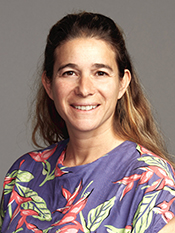 With school under way and the Centers for Disease Control reporting that 2013 is on track to be the worst year for measles in the United States since 1996, parents need to ensure their children’s immunity. To learn about vaccinations and this year’s increase in measles cases, we sat down with Hayley Gans, MD, an infectious-disease specialist at Lucile Packard Children’s Hospital and an assistant professor of pediatrics at the Stanford University School of Medicine.
With school under way and the Centers for Disease Control reporting that 2013 is on track to be the worst year for measles in the United States since 1996, parents need to ensure their children’s immunity. To learn about vaccinations and this year’s increase in measles cases, we sat down with Hayley Gans, MD, an infectious-disease specialist at Lucile Packard Children’s Hospital and an assistant professor of pediatrics at the Stanford University School of Medicine.
What do you think is the main cause of the uptick in U.S. measles cases this year?
Dr. Gans: There are multiple reasons for the surge. Increasingly, there are whole communities who have not been vaccinated for measles, and the reasons vary from religious to philosophical.
Second, travelers to this country who have not been immunized and are sick with measles can introduce the disease into U.S. populations that do not have immunity from measles. In addition, unimmunized or partially immunized residents who travel to areas where measles is circulating may become ill and bring the disease back to this country.
When should a parent get their child vaccinated?
Dr. Gans: The current recommendation is for a child to receive his or her first measles vaccine between 12 to 15 months of age, and then the second dose between the ages of 4 and 6 years. But the second dose can be given as early as one month after the first dose.
If a parent is planning to travel with their children, any child that is older than 6 months should receive the vaccine, and any child who has received one dose should receive a second dose. In order for the vaccine to be protective, it should be administered at least two weeks prior to travel. In addition, parents should not assume that a foreign country is free of measles. Many nations, including some European countries, are having recurrences of the disease after being free of measles for years.
How long does the vaccine last? Is it possible to get measles twice?
Dr. Gans: As far as we can tell, the measles vaccine provides lifelong protection – there should not be a need for a booster later in life. Two doses of the measles vaccine should be enough.
As for contracting measles a second time, when a person has natural measles once, he or she is immune to a recurrence.
What are the side effects of the measles vaccine, if any? Are there any inherent dangers to the vaccine?
Dr. Gans: There has been no link between the measles vaccine and a major disease. The most common side effects are related to the site of immunization, which include redness and swelling. Between 5 and 15 percent of people may develop a fever and slight rash, which is not contagious.
What are your predictions for the spread of measles in the Bay Area and in the United States?
Dr. Gans: It is difficult to predict how measles will behave both locally and nationally because of all the cases of measles imported by travelers. But what we do know is that measles cases will spread in areas where immunity is low. In the Bay Area and in the rest of the U.S., we definitely have populations where the rate of measles immunization is lower than is required to stop transmission, and those areas will be more susceptible to measles. Measles is highly contagious and requires greater than 95 percent of the population to be immune to disrupt transmission.
The good news is that most people in the U.S. are immune to measles because they have been vaccinated. The areas of higher immunity will prevent measles from traveling too widely, in addition to preventing the virus from becoming endemic in the U.S. again. While measles was declared eliminated from the United States in 2000, it is now re-emerging because of low immunization rates in some populations and travelers.
Click to learn more about the Infectious Disease Clinic at Lucile Packard Children’s Hospital

Leave a Reply